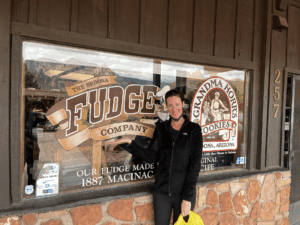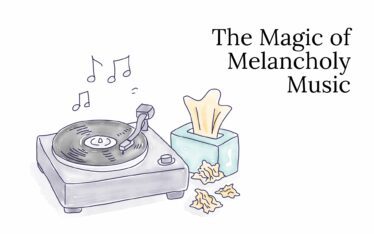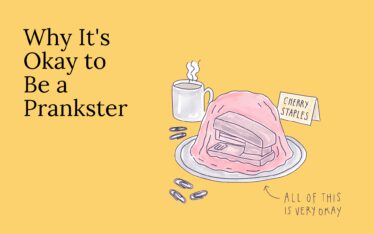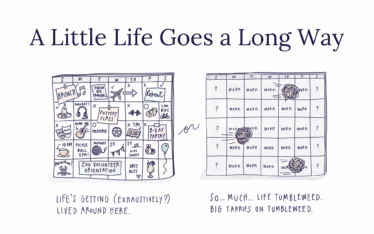Like most of you worker bees, I have been accused of “living to work” instead of “working to live” — and even though I really like eight-and-three-quarters out of every 10 hours I work, I said, “F this!” and decided to join The Husband for a hefty part of his eight-week sabbatical. Here are 11 of my observations, some of which might be actually useful to you and your life:
11 Sabbatical Observations:
- Anticipation is a spark plug for happiness. Looking forward to a chunk of time off on the horizon felt intoxicating. Planning sojourns and staycations and daycations and what to eat at our inaugural visit to Mr. J’s Dawgs and Burgers (the Pure Beef Polish Special #3, obviously) — all that suspense and preparation was almost as delightful as the time off itself. Studies show that the buildup to a vacation is often more enjoyable than the vacation, and that anticipation is more emotionally intense than retrospection. There is undeniable value in delaying the consumption of good things in life, so this begs the question: what can you plan for and savor the shit out of until it arrives? Speaking of planning…
- Planning makes things possible. This sounds face-stabbingly boring, I know. But how else can you make time off from work feel special and not like a random Saturday full of chores and getting lost in Home Depot? You make a list. The Husband and I drafted a nice long List of All Things Sabbatical with things we wanted to do, places we wanted to eat, meals we just might muster the motivation to make, books we wanted to read, movies we wanted to watch… you see where this is going. When we weren’t traveling, we’d wake up and ask, “What do we feel like today?” Check the list! Having a menu of pre-approved options at the ready took the guess work out of what to do. Some days were a mix and match of what was on the list (brunch-then-museum-then Bloody Marys), some days we came up with something totally different (I’m no slave to a plan), and some days were all about intentional slothery — like watching hour after hour of movies about snipers. Even when traveling, I’d map out a loose plan for our days that we had full permission to bail on — like if we weren’t in the mood for a wine tasting (which is a bad example because we’d never bail on a wine tasting, but we did bail on dinner reservations in favor of eating our own cobbled-together meal back at our hotel room). The only way I know to not end up with a bunch of non-noteworthy days passing me by is to put an iota of thought into how to make them fun +/or meaningful. Where might you benefit from planning a special day, or weekend, or date night, or time alone?
- Paradise doesn’t exist. This is painfully obvious but worth noting, because as we lather ourselves up in eager anticipation for the thing we’re looking forward to, our grip on reality gets slippery. The Husband and I have an uncanny way of wrecking the weather when we travel, like that time we went to LA over Christmas for a balmy break and all Santa brought us was the cold. We know this is true — that we are meteorologically challenged — and yet we unfailingly believe that the weather will be what we want it to be, especially during our First Ever Sacred Sabbatical Where Everything Will Be Pretty Much Perfect. That’s a bunch of bullshit, I know. But a girl can fantasize about Sedona being sunny and hot, can’t she? (Sedona was unseasonably cold while we were there last month, which meant I pretended to be having a fabulously comfortable time sipping wine on an outdoor patio as I counted the minutes down until we could be back by the fire again in our room.) Of course it rained in Napa Valley while we were there, because that’s what the weather does. Of course the best Mexican restaurant in Palm Springs was closed on the Tuesday we were there with wild taco cravings, because running your own restaurant means you get to say, “sayonara, Tuesdays!”. Of course we had a massive flight delay coming home from Miami, because airlines suck — and why would they stop sucking just because we were on a sabbatical? Double-downing on the fantasy of how we really really want things to be is a trap and only sets us up for disappointment. We do this in advance of any event that matters, and it has the significant risk of decreasing our well-being. We’ve talked before (here) about how happiness is the difference between our expectations and reality, so where might you need to manage your expectations in life?
- Novelty slows down time and speeds up happiness. I am a proponent of shaking shit up because I’ve done the research and know that novelty is a key ingredient in the recipe for a well-lived life. Taking time off puts a pin in the habits that meld our days together; traveling to a new environment adds the stimuli that wakes us from our vitality slumber and snaps us to attention. Routines are barely formed after five nights in a hotel room (it takes three solid days to get into a “here’s how I use the shower here” groove), and our brains thank us for the autopilot reprieve. The Husband was off for eight weeks and I was off for five, and neither one of us feel like time flew by in the ways it does when our heads are down, in our usual zombie work routines. Where can you shake your routine up, so as to inject necessary newness into your life, and prolong the passing of time?
 Weight will be gained. I have a special gift of sussing out the fudge store in every town I visit — it’s a finely honed talent I’m pretty proud of (Sedona has the best fudge ever, Flagstaff’s fudge is pretty decent, and don’t even bother with the one in Palm Springs). So it turns out that buying and eating several pounds of rocky road and maple walnut and sea salt caramel fudge doesn’t keep you trim? The Husband and I consumed about 75 bags of chips, ordered fries everywhere fries were an option (toppled with parmesan and truffle oil wherever possible), consumed reckless amounts of encased meats, cheered on every restaurant server for “more mayo, please!”, and killed enough candy to put a seven-year-old trick or treater to shame. I was basically in the slowest-motion binge of all time, and I’m not even bulimic anymore. Whatever! Giving myself permission to eat everything felt like a decadent way to celebrate this unprecedented amount of time off. So now I’m back to reality and wondering why cheese-filled omelets aren’t on the breakfast menu every morning.
Weight will be gained. I have a special gift of sussing out the fudge store in every town I visit — it’s a finely honed talent I’m pretty proud of (Sedona has the best fudge ever, Flagstaff’s fudge is pretty decent, and don’t even bother with the one in Palm Springs). So it turns out that buying and eating several pounds of rocky road and maple walnut and sea salt caramel fudge doesn’t keep you trim? The Husband and I consumed about 75 bags of chips, ordered fries everywhere fries were an option (toppled with parmesan and truffle oil wherever possible), consumed reckless amounts of encased meats, cheered on every restaurant server for “more mayo, please!”, and killed enough candy to put a seven-year-old trick or treater to shame. I was basically in the slowest-motion binge of all time, and I’m not even bulimic anymore. Whatever! Giving myself permission to eat everything felt like a decadent way to celebrate this unprecedented amount of time off. So now I’m back to reality and wondering why cheese-filled omelets aren’t on the breakfast menu every morning.
- Neuroses and issues don’t go away. They just hibernate. It was downright tranquil to take a break from the saboteurs that fill my head in a typical work week — you know, the fodder-for-therapy kind of thoughts like, “I’m sure I didn’t meet her expectations,” “I’m not doing enough on social media,” “He’s probably wondering why he hired me,” and, “Why do I have to do social media again?”. Taking a break away turns down the volume of those voices. Taking long walks in vineyards with The Husband, talking about my worries of enoughness (being enough, doing enough, insert all the other enoughs here) — it felt soothing and almost recuperative. Until I came back and realized I had just pressed the pause button on the problem (not the delete button, which I’m pretty sure only happens with a lobotomy, which I’m not up for just yet). Coming back from many weeks off ignited my worries about how disappointed I perceived my clients would surely be if they didn’t get a perfect time slot for our next session or workshop or team event, how disappointed they’d be in me for not responding to their emails the first day my out-of-office message said I’d be back. Looks like I have some work to do to. What issues might you like to permanently pause? How can you proactively work on them today, so they don’t haunt your tomorrows?
- Epiphanies aren’t guaranteed. I naively thought I might see my life with a new perspective, like donning a new pair of glasses to see all the dull edges with crisp, post-sabbatical clarity. Maybe five weeks off isn’t long enough to alter one’s point of view? Five months, maybe. So what was I hoping for — a lightning bolt of inspiration? Well, yes. Searing insights into how I live my life? (You can’t see me but I’m nodding enthusiastically.) A catharsis? Now you’re talking! Deep, lasting transformation? Well, likely not (lounging by a pool doesn’t tend to elicit radical change), but I’d have welcomed it with open, sun screened arms. As a coach I have a severe bias towards insights and action, and I guess I wanted a wee bit of that sprinkled over me. It’s possible I’ll have a retrospective metamorphosis, and if so, I’ll keep you posted. Are you longing for an epiphany to edit a part of your life? Might coaching be right for you?
- You might realize you ain’t no spring chicken. Day drinking is fun, but when you are over a certain age, two drinks at lunch leads to an open-mouthed nap on the couch while watching tennis on TV, not a gateway to partying like it’s 1999 all through the evening. Flying for hours and then renting a car and then trying to figure out how to get into your Airbnb (lockboxes be damned!) can be downright exhausting. Jam-packed days of hiking and buying fudge and getting ready for dinners out where your hair has to look somewhat presentable (i.e.: not in a baseball cap) — all that can knacker you out and make you realize you’re closer to your death than your birth. I learned that waiting to “live it up” in retirement is a half-baked plan. Retired people in financial investment commercials look effervescently alive, but that’s because a) they’re made up with a lot of under-eye concealer, b) it’s possible they’re energized by their grandkid’s Ritalin, and c) we all know they go straight home after the shoot and put their bunioned feet up, downing anti-inflammatories all night. Postponing the life we’ve always dreamed of living for retirement is a risk we can’t afford to take. How can you live with more width and depth now, rather than waiting until you’re physically +/or mentally limited down the road?
- Things won’t get done and it’s fine. The work will mount, and it will be there waiting. You know the expression, “When you die, your inbox will still be full”? It’s true (and with all that spam it’ll just keep filling up even after we’re gone). When you take five weeks off, the work doesn’t evaporate, it just marinates. I checked my email every day to scan for extremely urgent things (like Amazon delivery notices, ahem) and the email tally grew and grew with each passing day. It was fine. (A friend of mine suggested editing my settings to remove the number on the Inbox app on my phone. I might do that on the next sabbatical.) Google Analytics sent me a “sucks to be you” email telling me that my Four Thousand Mondays web traffic decreased by 62% in October. Looks like when you take your eye off the ball, the ball drops. It’s fine. That’s just it — I was worried about taking time off because I was worried the ball would drop. But you know what? The ball is right where I left it when I dropped it. Where can you relax into the idea that not everything has to be done pronto? That you can pick up where you left off, too?
- Learning is like oxygen. The risk of having one’s brain go to mush without any mental stimulation is real, and it’s a risk I was (mostly) careful to avoid. The Husband and I have become the kind of people who go on tours (stop your scorning, you over there) because the learning is like a drug. We had an Audubon expert take us on a birdwatching tour (did you know that hummingbird’s hearts can beat as fast as 1,260 beats per minute?!)… we went on an architecture tour in Palm Springs… we had an anthropology expert take us on a hike in Sedona, highlighting rocks that were over 300 million years old… we learned through several tennis lessons that I am truly awful but I do show potential to get ~10% less awful… and the list goes on but I’ll stop. (Let’s be clear here: learning happened in and around an awful lot of idleness, like time spent watching reruns of Little House on the Prairie, which I’m not ashamed to admit.) Where can you add a little more learning into your life? Maybe a MOOC? Maybe learning a new physical skill (for the double-whammy of brain and body exercise)?
- Commemoration and reminiscence are powerful. With every passing day, the incandescence of the special sabbatical time fades, the memories start to dissolve. How to not let this fraction of time fade into the proverbial woodwork of my life lived thus far? When in doubt, make a mug! No really: I had mugs made with a cute little Wellman 2021 Sabbatical logo (and I also ordered playing cards which we never used because I forgot that I hate playing cards). Every now and then we’ll use the mugs and think, “remember the time…” in a way we’d not be prompted to do without a prop. We also made a highlight list of each trip, excursion, and moment so as not to dull the flame. (For example, “Rossi’s Bar” is written on the list, because of the day we popped into one of Chicago’s dive-iest dive bars at 1pm, only to find all the barflies inexplicably watching Friends on TV with fervent attention. We awkwardly walked in on what seemed like a special ritual, to be tipsy in the day while watching Ross and Rachel bicker.) So the plan is to revisit the photos and the list every now and then, while drinking from the logoed mugs, maybe learning to play Crazy Eights while we’re at it. What events might you want to commemorate and reminisce about? How can you make your next holiday feel even that much more special?
There you have it — 11 things to keep in mind for either your own chunk of time off work, or for your life in general.
My mission at this point is to intentionally build sabbaticals into my calendar on a regular basis. When my instinct tells me, “Oh! I can’t do this yearly!”, I’m forcing myself to get suspicious. Why not? Says who? Working for myself affords me more flexibility than most of the people I know, so shouldn’t I be able to carve out more time? (I’m telling myself the answer is yes.) And for those of you working for a boss: you might not be able to take two months off at your leisure, I get it. But I’ve worked with countless clients who have found a way to make this work. It sounds like this: “I’d like to talk with you about taking a sabbatical for a month in the winter of 2022/2023, so I can take a break with my family/ dog/ self and come back refreshed. I want to plan this thoroughly, so that we both feel comfortable and confident in it not adversely affecting the business. I really want to make it work, as I see it as a mutually beneficial break. Are you open to this kind of discussion?” Some people negotiate paid time away if they are working on a special project that’s in line with their organization (like writing a book that will help their company sell more widgets). Most take the time off unpaid and figure it into their budget as a Life Event that as MasterCard says, is priceless.
If you’d like to talk turkey about making this work in your life, please just reach out. In the meantime, even if it’s just a dream at this point, can I humbly suggest you start drafting plans for this time off? Think of what you’d like to do, where you might like to go, what you might like to accomplish, who you might like to visit, how much sleep you’d like to get, etc. Something magical happens when you put thoughts down on paper. Winter of 2022/2023 will be here before you know it. Pre-savor it!







